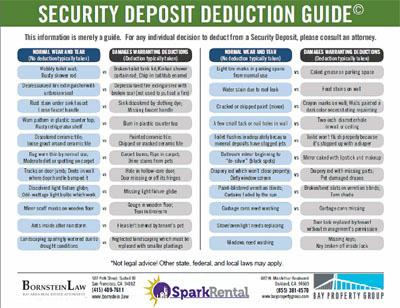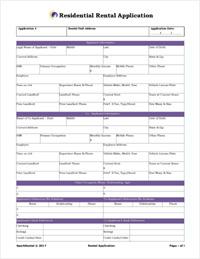House Hacking Calculator
Crunch the numbers on how much (if any!) you’ll come out of pocket when house hacking
Ever wished you could live for free?
Of course you do. Every time you make your mortgage or rent payment, I’d wager. Which is why we’re so keen to help you ditch it.
The World’s First House Hacking Calculator
House hacking is the beautiful science of having someone else pay for your housing costs. The traditional model involves buying a multifamily, moving into one unit, and renting out the other(s). For a detailed breakdown of how one guy with no experience did it, see this duplex house hacking case study.
Or you can house hack a single-family home through roommates, Airbnb, foreign exchange students, income suites, storage space or any other way of generating income through your home.
The more income you generate through your home, the better. If you can bring in 100% of your housing costs, then guess what – you live for free!
How to Use This House Hacking Calculator
It’s pretty easy, but instructions never hurt, right?
You enter the anticipated rental income that you can bring in every month, whether you’re renting units, bedrooms, storage space, whatever. You then enter your mortgage loan terms, and it spits out your monthly mortgage payment.
Then come your expenses: vacancy rate, maintenance and repairs, property management fees, property taxes, homeowner’s insurance. Don’t underestimate expenses, it’s a rookie mistake!
Once you’ve entered the expenses, the house hacking calculator crunches four numbers for you:
- The percent of your monthly mortgage payment (including principal, interest, taxes, and insurance) that your rental income can cover,
- The percent of your total housing costs (including all expenses, such as vacancy rate and repairs) that your rental income can cover, and
- Your “typical” monthly housing costs, only including the mortgage payment, and
- Your net monthly housing costs including all
Enjoy!
Need a House Hacking Mortgage?
Here are today’s mortgage interest rates. You can compare prequalified rate quotes from a range of mortgage lenders using tools like Credible*.
Remember, with a house hacking mortgage you need to live in the property for at least a year. Moving out before that, or failing to move in at all, is a violation of the terms of owner-occupied mortgage loans.
If you’re looking for an investment property loan, see our comparison chart for rental property loan terms instead.
FAQ About House Hacking & The Calculator
What’s the difference between “typical” monthly housing payments and net total monthly housing payments?
In a typical month, the only expense you’ll incur is the mortgage payment. But you’ll also occasionally have large, sporadic expenses like vacancies, repairs, maintenance costs, etc. So we provide both the typical month’s housing payment, subtracting the mortgage from the rental income.
To better understand how long-term averages impact rental cash flow, see this breakdown of visualizing real estate cash flow.
Where can I find a list of all the ways to house hack?
Read our full article 10 Ways to House Hack for a comprehensive list and explanation of each house hacking strategy.
What does “PITI” stand for?
PITI stands for principal, interest, taxes, and insurance – the common expenses included in a monthly mortgage payment.
Can I house hack a rental property?
Absolutely! It works the same way: you rent a larger property than you need, and rent parts of it out. The house hacking calculator above doesn’t have an option for entering rent rather than calculating the mortgage payment, as our focus is on real estate investing after all, but just tweak the purchase price so that it spits out a mortgage payment that’s close to the rent you’ll be paying.
What service did Deni use to house hack with a foreign exchange student?
Email us at support (at) sparkrental.com and we’ll tell you 😊
Could I house hack by adding one of those $3,000 cabin kits I see on Amazon?
Yes and no. Yes, you can build an outbuilding, AKA casita, AKA guest house on your property and rent it out either long-term or on Airbnb, to house hack and generate some extra income.
But the cheaper cabin kits don’t have plumbing, electricity, or climate control. You can add them of course, just be aware that it will mean an additional cost.
*Credible Disclosure: Prequalified rates are based on the information you provide and a soft credit inquiry. Receiving prequalified rates does not guarantee that the Lender will extend you an offer of credit. You are not yet approved for a loan or a specific rate. All credit decisions, including loan approval, if any, are determined by Lenders, in their sole discretion. Rates and terms are subject to change without notice. Rates from Lenders may differ from prequalified rates due to factors which may include, but are not limited to: (i) changes in your personal credit circumstances; (ii) additional information in your hard credit pull and/or additional information you provide (or are unable to provide) to the Lender during the underwriting process; and/or (iii) changes in APRs (e.g., an increase in the rate index between the time of prequalification and the time of application or loan closing. (Or, if the loan option is a variable rate loan, then the interest rate index used to set the APR is subject to increases or decreases at any time). Lenders reserve the right to change or withdraw the prequalified rates at any time.
Credible Operations, Inc. NMLS# 1681276, “Credible.” Not available in all states. www.nmlsconsumeraccess.org.














